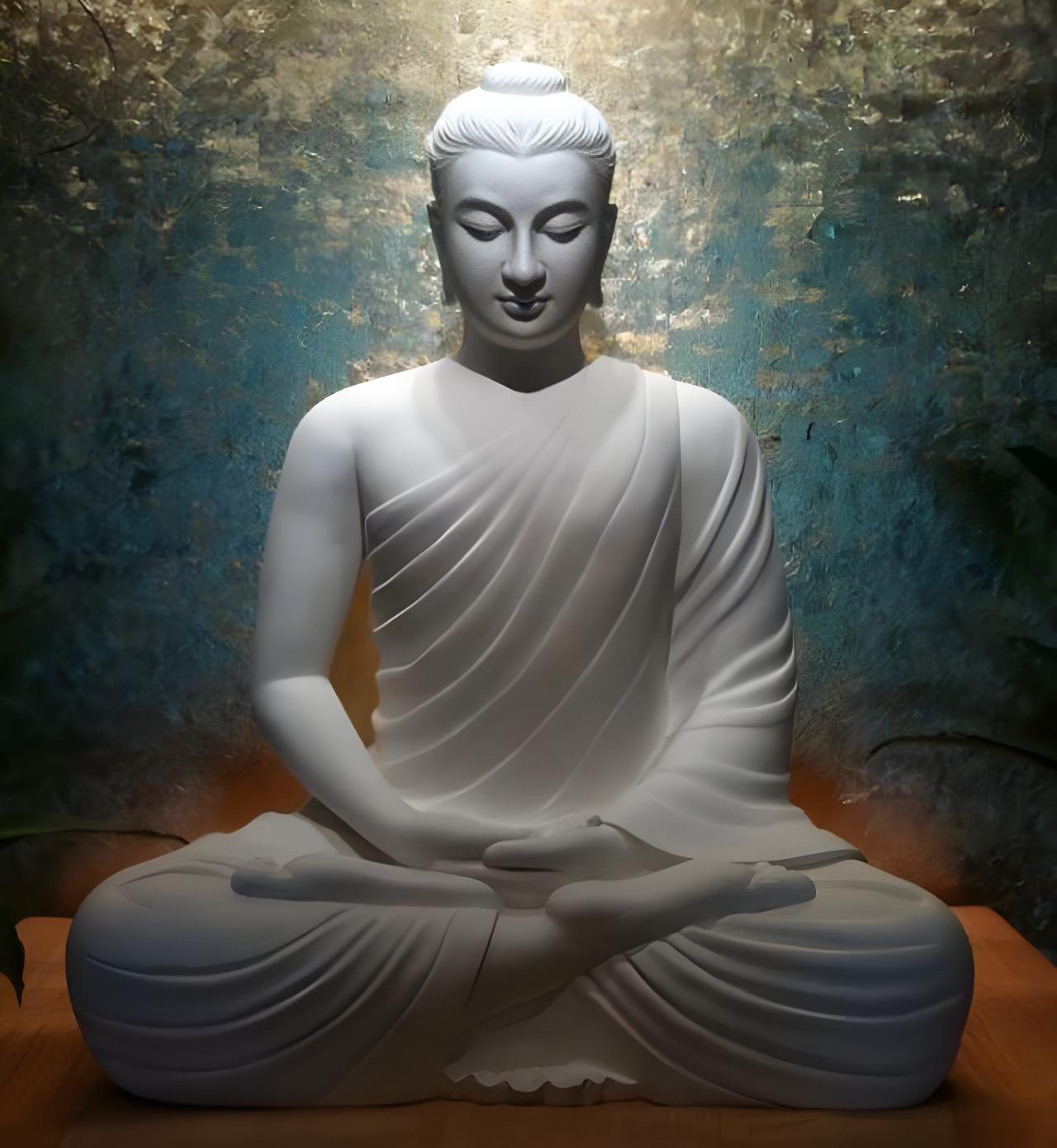The path to enlightenment is a deeply personal one. It does not follow a set schedule. Consequently, defining an “estimated time practicing buddhism” for achieving this profound transformation is not straightforward. The practices themselves such as meditation and mindfulness can become daily life. Also, dedication, practice and understanding the nature of suffering, will effect that timeline. For some, awakening may seem almost immediate while for others, the path requires sustained effort over many years. Ultimately, it is the commitment to these teachings that makes all the difference in the journey to freedom.
Understanding the Foundation of Buddhist Practice
The essence of Buddhist practice rests on the understanding of suffering and the path to liberation. Initially, it requires consistent study of Buddhist teachings and scriptures. Consequently, it begins with gaining the correct insight through learning and reflection. Besides, mindfulness, also known as meditation, cultivates awareness of the present moment. This technique plays an important role to start to understanding the impermanent nature of existence. Also, the process involves applying moral principles that encourages compassion and right action. Over time, the practices becomes part of an individual’s day to day life.
Exploring Various Buddhist Practices
Buddhist practices are diverse, adapting to many styles and lifestyles. However, core components such as meditation are vital. These exercises can range from seated practices to walking meditation. Further, it includes incorporating mindfulness into daily activities. Therefore, by engaging these techniques, practitioners sharpen focus. Additionally, they gain greater emotional resilience. Each technique promotes concentration that leads to insights of wisdom and compassion. Also, it is important to remember that integrating compassion into life through various means has a direct connection to Buddhist life. Thus, understanding these practices is a crucial step toward personal transformation.
The Concept of Time in Buddhist Philosophy
Within Buddhist philosophy, time is considered to be not what it appears. The nature of experience constantly changes and time is also the subject of constant change. Therefore, concepts like “estimated time practicing Buddhism” are seen as relative rather than absolute. A person does not exist as the same entity even in the passing of the smallest of measurements of time. Buddhist understanding teaches that a deeper experience of freedom lies in focusing on the present moment rather than chasing after a time on the clock. Furthermore, awareness develops the ability to see time for the mental construct that it is. It is important to focus on a journey and to embrace the journey as well as all the ups and downs.
Individual Variation and the Path to Enlightenment
Each individual’s path towards enlightenment is unique, marked by variations. People’s past life experiences play a crucial role, shaping understanding of concepts. Different approaches to Buddhist principles create varied journeys of discovery. Indeed, the experiences influence each person’s depth of practice. Ultimately, enlightenment does not come on a specific time schedule, nor can it be generalized. However, commitment, consistent effort, and patience significantly affects progress towards realization of nirvana. Consequently, individuals on this path gain wisdom and become wiser along the way.
Dedication and the Role of Patience
Dedication is an essential factor in achieving any progress. Without the unwavering persistence progress may be delayed in seeing enlightenment. For a meaningful journey with a lifetime of practice. Also, commitment involves consistent effort and focused attention. Moreover, practicing patience with the process of practicing buddhism is important. This is true because self improvement and development can take an extended period of time to start. Additionally, cultivating compassion enhances the individual experience by learning more about self. As the individuals learn and improve themselves they get one step closer to ultimate wisdom. Thus, these inner growth allows more capacity to embrace changes as life presents them.
Integrating Practice into Daily Life
It’s essential to integrate Buddhist teachings into daily life. Indeed, this approach moves beyond a scheduled practice into constant mindfulness. Simple activities, from washing dishes to communicating with people, become ways to be mindful. As a result, practitioners cultivate a more profound understanding of themselves, in their personal lives. Likewise, one may develop a calm presence, not just while meditating. Through these subtle means, the teachings grow in an individual, bringing peace in all areas of life. Therefore, through dedication and constant self-reflection will lead to transformation.
Estimated Time Practicing Buddhism: Beyond the Clock
The question “estimated time practicing buddhism” shifts to focus more on the practice of the path rather than the duration of time. In Buddhist understanding, the journey itself provides invaluable life experience. Furthermore, it can be said that the more time spent on this practice is less important than quality of that time and consistency in one’s daily practice. While there’s no magical timer to awakening, consistent effort in living the path develops wisdom and peace within. Consequently, living with understanding becomes more powerful than a timeline. This continuous work enhances daily experience with wisdom and serenity, guiding each step of the journey.
The Significance of Community in Practice
Engaging in a supportive Buddhist community enhances and helps strengthen a personal practice. Sangha, the Buddhist community provides teachings that offer support as needed. The fellowship encourages sharing challenges and inspiring the others with teachings. Indeed, joining a sangha can help people continue forward with compassion as they all move along the path of growth and inner-development. Moreover, listening and sharing with each other can lead to insights, understanding and learning from a group. Therefore, the practice may even accelerate from these combined sources.
Mindfulness and its Role in Everyday Living
Mindfulness is a pivotal practice that can profoundly enrich lives in a variety of ways. Through practicing the concepts, each moment becomes an opportunity for insight. Further, mindful attention brings clarity and appreciation into the most mundane tasks. By focusing on breathing or a gentle walk can foster an attitude of awareness and peaceful presence. Also, consistent mindfulness, one develops the ability to reduce the impact of stressors. Indeed, these small changes cultivate greater awareness of the here and now. Consequently, mindfulness cultivates patience with the process and also helps to maintain progress on the path to transformation.
Sustaining the Journey over a Lifetime
Practicing Buddhism is viewed as an extended, continuous learning process, not a quick fix. Consequently, it evolves into a lifetime of exploration and understanding, not a destination to arrive at. The journey to personal growth also changes one’s perspective and outlook on all aspects of life. By taking the teachings into consideration it changes the perspective of one’s interactions with their experiences. Therefore, continuous application in everyday experiences leads to self transformation, enhancing the individual. Finally, it provides a continuous pathway toward self discovery through living with understanding and wisdom.
Embracing the Uncertainties of the Path
Embracing uncertainties forms a key component of Buddhist path, it means giving up trying to define a schedule or a concrete plan. However, while the goal of enlightenment remains constant, the pathway of every individual remains unique. Additionally, letting go of control opens to a natural learning and growing process with all experiences. Similarly, patience is an essential attitude along the journey which permits for deeper growth without any added pressure or strain. Therefore, when a person practices acceptance of change they are practicing the essence of buddhist philosophy, thereby increasing inner-growth. This constant practice helps in embracing one’s own potential.
The Interconnectedness of Time, Practice, and Self
Buddhism teaches about the concept of the interconnection between our perception of time, personal experience and practice. Through the experience it may come into view that personal identity and ego are a constantly moving experience as the mind experiences the world. Consequently, this continuous self-discovery provides ongoing practice with the wisdom from understanding the relationship of the observer and the experiences. The person, then begins to let go of rigid thinking by recognizing that no one experience lasts and also that every moment can have valuable teaching opportunities within it. Therefore, the experience of Buddhist philosophy changes with continuous effort to observe our own existence as a unique learning opportunity.
Applying Wisdom and Compassion
Ultimately, wisdom and compassion should extend through an individual’s day-to-day living, not just meditation time. As awareness is cultivated in our own daily actions compassion emerges to help create kindness to others and also the world around them. As mindfulness becomes consistent the way an individual interacts with others, will eventually mirror their own interactions with self-reflection. As a result, compassion can become part of daily experience enhancing interactions with family members or complete strangers with understanding. Also, individuals discover greater wisdom as it grows with every mindful experience throughout their entire day. Thus, continuous practice nurtures both personal peace and promotes positive actions, through awareness and compassion.
Conclusion: Focusing on the Journey, Not Just the Time
Instead of wondering the amount of time “estimated time practicing buddhism” to reach enlightenment, shift the focus on experiencing and enjoying the path itself. As people delve deeper into teachings, they learn the practice itself holds deep value as every moment becomes a way to understand personal change. Furthermore, consistency, and commitment of effort with focused attention help individuals toward self-awareness. These teachings improve the experiences of each moment. Therefore, by incorporating the principles of mindfulness, compassion, and constant study creates personal inner growth. In the long run, those devoted to personal understanding move further along the path to their unique discovery.


